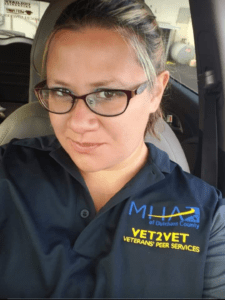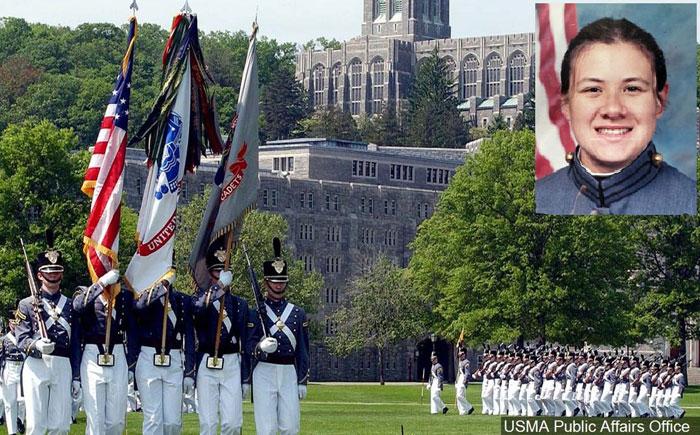CARMEL – A Class of 2004 United States Military Academy graduate has come forward to report that she was raped by an upperclassman at the service academy less than two months after she arrived on campus in the summer of 2000. Alyssa Carrion says that the incident occurred in her West Point dorm room and has led to a life consumed by anxiety and depression that has required professional treatment and medication. She is now seeking disability benefits as a result.
Carrion, a Carmel native and current resident, said that when she and her fellow female freshmen or plebe cadets as they are called, arrived on campus, they were given a warning by upper-class female cadets. “We were pulled aside and warned about sexual assault with the older females telling us not to say anything if we were assaulted. Less than a month later, I was sleeping in my room when I awoke to an upperclassman having sex with me. It happened when the upperclassman was supposed to be making sure our doors were unlocked after TAPS was sounded.” Students are required to keep their doors unlocked and upperclassmen are assigned to check for compliance every night after TAPS. ” I stayed motionless until he finished, got up, and left my room. I had a difficult time coming to terms with what had just happened,” explained Carrion.
Carrion says that she told a fellow female plebe the next day and was once again warned against reporting it to the chain of command. The plebe who warned her had recently reported being assaulted and Carrion said that the resulting investigation publicly shamed the plebe to the point that she dropped out of the academy.
Carrion is not seeking a criminal investigation into the assault, realizing that too much time has passed. “It took me 20 years to build the courage to speak out about what happened to me and sex crimes are still a problem at West Point,” according to Carrion and she wants it addressed. “Twenty years have passed since I was raped and nothing has changed at the school that is supposed to be the best of the best.”

The victim graduated and served as a member of the military police at Fort Lewis, Washington, and was also deployed to Egypt. She left active duty in 2009 and finished her duties in the reserves in 2011. Carrion now works for the MHA Dutchess Vet2Vet program, helping fellow veterans with a variety of issues.
She filed her application for Military Sexual Trauma disability benefits with the assistance of Dutchess County Veterans Services on March 19. The application will eventually go to the US Department of Veterans Affairs.
“It requires a tremendous amount of documentation in order to submit the claim. As soon as I made my situation public, several other females that attended the USMA have shared similar experiences with me. I will be helping them file their claims as well. The only way to change the culture at West Point is to make noise – and now is the time,” said Carrion.
“Sexual assault and sexual harassment are persistent and disruptive problems that have no part in military service. The Academies are making progress, but considerable work remains to continue reducing and stopping sexual assault at the academies,” said Major General Clement Coward, the director of the Department of Defense’s (DoD) Sexual Assault Prevention and Response Office. The statement was made on February 25, 2021, upon release of the DoD Annual Report on Sexual Harassment and Violence at the Military Service Academies for Academic Program Year 2019-2020.
The Army instituted changes in how members of the service report sexual assaults. In 2009, the Army created the Sexual Harassment And Prevention program, known as SHARP. The program has focused its efforts on five specific priorities of including the prevention of sexual assault, the competent and sensitive investigations of sexual assault, accountability for the perpetrators of sexual assault, assistance to, and advocacy for, the victims of sexual assault, and the effective assessment of SHARP programs.








